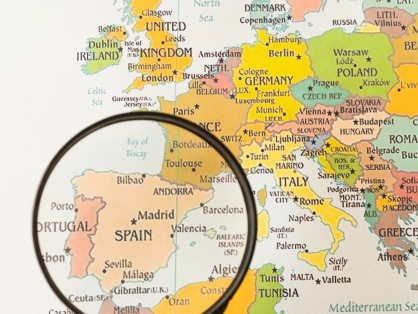Spain is a country that attracts people from all over the world, whether it's for work, study, or simply to enjoy its beautiful landscapes and rich culture. However, when it comes to staying in Spain for an extended period, there are two main categories to consider: residency and stay status. In this comprehensive guide, we'll explore the differences between these two, how long you can stay in Spain under each status, and the various options available to you.
The Distinction Between Residency and Short-Term Stay Status in Spain
Before delving into the specifics, it's crucial to understand the fundamental difference between residency and stay status in Spain.
- Residency: Residency signifies a commitment to Spain as your primary place of residence. It's a long-term arrangement that grants you specific rights and responsibilities. As a resident, you gain access to public services, comprehensive healthcare, and the freedom to work or study without constraints. Residency is a significant step towards full integration into Spanish society.
- (Short) Stay Status: Conversely, (short) stay status is tailored for individuals with temporary intentions in Spain, typically lasting less than three months. This status applies to various scenarios, including tourism, business engagements, or brief educational pursuits. It does not entail a commitment to establish permanent residence in the country and is subject to its own distinct regulations and limitations.
Now, let's delve into a more detailed analysis of each category, exploring the specific situations that qualify for short-stay status and the various types of residencies available in Spain, along with the procedures for obtaining them.
How Long Can I Stay in Spain? The Duration of Stay in Spain
The duration of your stay in Spain is contingent on your country of origin. In most cases, tourists with a valid visa can stay for up to 3 months. However, to continue your stay legally beyond this period, obtaining a valid residence permit becomes imperative.
However, if you happen to be a citizen of the European Union or one of the following nations, you enjoy the privilege of visa-free entry into Spain for an initial 90-day period:
Andorra, Argentina, Australia, Austria, Belgium, Bolivia, Brazil, Brunei, Canada, Chile, Costa Rica, Croatia, El Salvador, Guatemala, Honduras, Hong Kong & Macao (China), Israel, Japan, Malaysia, Mexico, Monaco, New Zealand, Nicaragua, Panama, Paraguay, Singapore, South Korea, United States, Uruguay, Venezuela.
If your country of origin falls within this list, you can freely access Spain with just your passport, exempt from the need for a visa.
How to Stay in Spain for More Than 3 Months
However, once those initial 3 months have elapsed, you will find yourself in a situation where your stay may be considered unlawful, necessitating the acquisition of a residence card. The process for obtaining this residence card varies depending on your country of origin:
If you originate from an EU member state, acquiring your European Union certificate is a relatively straightforward endeavor. This process is well-documented and easily navigable. You can explore comprehensive guidance on how to establish lawful residency in Spain as a European Union citizen.
Conversely, if you hail from a non-EU nation, securing a residence permit becomes a prerequisite. It's important to note that for most non-EU nationals, the application for residency typically needs to be initiated from your home country. Securing residency while in Spain as a tourist is only feasible under specific circumstances, such as those falling under the purview of the Entrepreneur Law, family reunification with an EU citizen, or holding a student visa.
Staying in Spain Without Becoming a Resident: Time Limits and Considerations
You are allowed to remain in Spain for a maximum of 183 days per year (equivalent to 6 months) without triggering the process of becoming a resident. However, if your stay exceeds this threshold, starting from the 184th day onward, you will be considered a resident and, consequently, be subject to resident taxes within the country.
It's essential to distinguish between two distinct aspects: the legal duration of your stay in Spain, which was addressed earlier, and the duration within which you can reside in the country without attaining resident status. This differentiation carries significant implications, particularly concerning your tax obligations.
Furthermore, it's crucial not to conflate residency for immigration purposes with fiscal residency, as these are separate concepts.
Additionally, it's worth noting that certain residence permits may necessitate a more extended stay in Spain exceeding 183 days per year for renewal purposes, which will subsequently lead to your attainment of resident status in the country.
Short-Stay Visa: Staying in Spain for 90 Days or Less
If your plan entails a stay in Spain lasting 90 days or less (3 months maximum), you'll fall under the stay status category. This typically translates to obtaining a tourist visa, or in some cases, not requiring any visa at all.
As previously mentioned, if you hail from a European Union country, you can access the short-stay visa with just your passport and ID. However, it's vital to note that this visa does not grant you the right to work within the country.
Moreover, relatives of individuals from EU countries, even if they themselves are not EU citizens, can also enjoy the opportunity to reside in Spain for less than 90 days using their passport or ID.
Rights and Conditions of the Stay Status
Understanding the rights and legal framework associated with the short-stay visa in Spain is crucial. Under this status, you are not permitted to work within the country or contribute to social security.
This status primarily allows you to legally stay in Spain for one of the following purposes:
- Tourism
- Study or research
- Volunteering
As long as your intention aligns with one of these three categories, you can obtain a short-stay visa.
Legal Stay in Spain for Study Purposes
Imagine you aspire to pursue a master's or Ph.D. program in Spain. If the duration of your course or research spans less than one year, there's no need to obtain a residence permit (student visa) to legally reside in the country. Spanish immigration law accounts for this scenario, granting you the stay status, distinct from a student visa.
The advantage here is the avoidance of extensive visa application paperwork. However, it's essential to note that this period will not count towards your eligibility for Spanish citizenship or permanent residency.
What happens once your studies or research conclude? You have two options:
- Extend your stay for study purposes by renewing your student visa.
- Transition to a special residency that permits you to work as a former student.
To qualify for this procedure, you must meet specific conditions:
- Accumulate at least 3 years of studying in Spain.
- Demonstrate productive use of those 3 years (genuine study efforts).
- Scholarships will disqualify you from this option.
- Provide evidence of a job offer related to your studies in Spain.
When Your Short-Stay Visa Expires
As your 90-day tourist visa approaches its expiration, you have two choices:
- Request an extension of the stay status, supported by proof of sufficient funds to sustain yourself in the country. Justifying the reason for the extension is crucial.
- If you contemplate long-term residence in Spain, you can apply for a regular residency authorization, which grants you a standard residency permit.
Residency in Spain: Your Path to Long-Term Stay
Residency is the legal status granted to individuals seeking to establish their long-term presence in Spain, surpassing the 90-day limit. There are two distinct categories of residency in Spain: temporary residency and permanent residency.
Temporary Residency
Temporary residency allows non-EU citizens to reside in Spain for more than 90 days but less than 5 years. It entails a thorough application process and is categorized based on your intention to engage in economic activities within the country.
- Non-Lucrative Residency: If you possess sufficient funds and do not plan to work in Spain, you can apply for non-lucrative residency.
- Lucrative Residencies: If you intend to work, there are various lucrative residency options available, depending on your circumstances.
- Employee Work Permit: If you have a job offer from a Spanish company.
- Self-Employed Work Permit: If you wish to start your own business in Spain.
- Highly Qualified Work Permit: For managerial positions with an annual income exceeding €40,000.
Note: The first two options must be obtained from your home country, while the last one can be processed in Spain.
3. Student Visa: If you plan to study in Spain for more than three months at a public or private institution, you'll need a student visa. Studies lasting less than 3 months do not require this visa.
Family Member of an EU Citizen
If you are a relative of a European Union citizen, you can obtain residency in Spain. This includes cases where non-EU individuals register through a civil union with an EU citizen in Spain. You can apply for residency as a family member of an EU citizen directly from Spain.
Golden Visa
Investing over €500,000 in Spanish territory qualifies you for the golden visa, known for its straightforward application process. It offers a streamlined path to residency for investors. Specific requirements for the investor visa can be found.
Permanent Residency
Permanent residency provides long-term residency status, allowing you to live in Spain indefinitely and work for 5 years. Afterward, you can renew this permit and apply for Spanish nationality. This eliminates the need for biennial renewals and grants you the right to work, even if your previous permit did not allow it, as is the case with the non-lucrative visa.
Understanding the Distinction Between Citizenship and Residency
While both citizenship and residency in Spain allow for long-term residence, they are distinct statuses with differing implications.
Spanish Citizenship
- Citizenship grants you the right to live and work not only in Spain but also in any other European Union (EU) country.
- It provides certain privileges, including the right to vote in Spain.
- Obtaining Spanish citizenship results in the acquisition of a Spanish passport, affording you full rights as a Spanish national.
Permanent Residency
- Permanent residency permits long-term residence in Spain, allowing you to live and work within the country.
- However, it does not extend those rights beyond Spain's borders.
- Permanent residents maintain a resident card rather than obtaining a Spanish passport.
In essence, a Spanish citizen enjoys the same rights as any other Spanish national, both in Spain and across the EU. Conversely, a permanent resident is a foreigner authorized to reside in Spain for the long term but does not possess equivalent rights.
The requirements and procedures for attaining Spanish citizenship differ based on your country of origin, impacting the number of years you must reside in Spain to qualify.
Checking Your Residency Status in Spain
Checking your residency status in Spain is essential to ensure compliance with local regulations. You can inquire about your status through official government channels or seek legal assistance to navigate the process.
Whether you choose to pursue residency or stay status in Spain, it's essential to understand the nuances of each option to make the right decision for your unique circumstances. Consider consulting with legal experts, like TA Lawyers, to guide you through the process and ensure a smooth transition to your chosen status in Spain.







 Hello, how can we help you?
Hello, how can we help you?